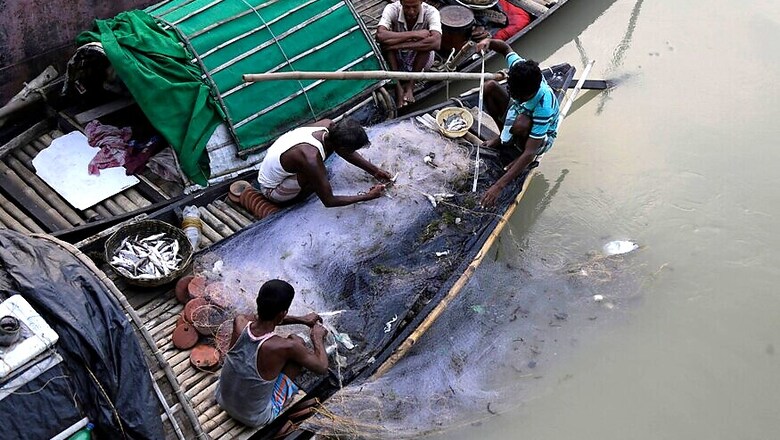
views
After Kolkata's infamous meat scare, it is the fear of poisoned fish that is the latest to grab headlines in India.
Recent reports of formalin-laced fish being found in several states has led to a severe drop in fish prices in Tamil Nadu. According to a Hindustan Times report, Tamil Nadu has recorded a 25 percent drop in fish prices following the scare.
Formalin is a colourless solution commonly used as a preservative in mortuaries to preserve bodies. If ingested in humans, it can even cause cancer.
Large quantities of fish, laced with the substance, were seized from Kerala’s Palakkad region. These fishes were allegedly brought from Andhra Pradesh. Formalin-laced fishes have also been seized in Nagaland, Meghalaya, Assam and Manipur.
While the formalin-laced fish scare has gripped several states, a new testing kit has been helping authorities to detect contaminated fish with better efficiency.
Developed last year by the Central Institute of Fisheries Technology (CIFT), the new rapid testing kit works just like a litmus test.
The CIFT director said that a MoU shall be signed between the institute and a private company for the job.
Why is it useful?
The testing kit would allow one to detect contamination immediately instead of waiting for a day to receive the laboratory test results.
Consignments of possibly infected fish can easily enter the market as authorities cannot seize entire lots without any test results in support. By the time the results arrived, the fish would already reach the market and become impossible to track.
The new test comprises three elements – two liquid chemicals and one specially formulated paper.
“The paper is first rubbed on the fish and then treated to a few drops of the chemicals. If the paper turns a deep blue, the fish is contaminated. If the fish is uncontaminated, the paper will turn light yellow,” said Mr Omanakuttan, an employee at the CIFT's Ernakulum research facility.
According to researcher Laali Gupta, the test will prove to be beneficial for fishermen and local suppliers who can segregate contaminated fishes from the good ones at the source.
“The whole point was to create a test that was cheap and could be used for field testing and screening. Other methods of rapid testing is available in countries like the US, but they are very expensive. This kit is easy to procure and cheap, which makes it perfect for Indian fishermen, suppliers and authorities,” said Laali.
Laali is one of the two women who led the research on the test.
CIFT said that that the technology will be handed over to another manufacturer who will produce the kit in bulk for the government. These kits will then be sold in the market for a retail price of Rs 3.




















Comments
0 comment